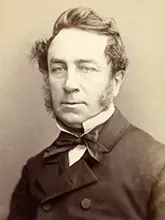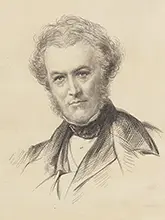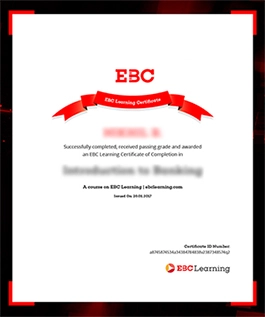Contract Law Essentials: Mod 2 — Free Consent, Illegality & Public Policy
Every day-to-day transaction involves the usage of contracts — whether it be entering into a contract with a client, or buying something from a shop. We learnt in Module 1 of Contract Law Essentials the essentials of contract formation.
This course builds on Module 1 and will walk you through the discussion on performance excuses, specifically those of mistake and frustration, then we go on to study when contracts can be avoided due to the presence of coercion, undue influence, fraud, and misrepresentation at the time of formation of a contract.
The course provides access to all the sections that you need to refer to, exercises, examination pointers and full text of 50+ cases from SCC Online. Exercises enable you to test your understanding of concepts and also prepare for your law school examination. Examination pointers are notes that guide you on what kind of questions you may expect in your law school examination and where to focus your study. The course is also linked to chapters from Avtar Sing's Law of Contract through EBC Reader. This, upon subscription of EBC Reader, provides quick access to relevant chapters from the book.

Judicial decision on one contract can rarely help us to the understanding of another.
Lord O'Hagan- 1. Introduction
- 1.1 Welcome
- 2. Effect of no free consent
- I. Relevant sections
- 2.1 Free consent and voidable agreements
- II. Exercises
- III. Examination pointers
- 3. No free consent: Coercion
- I. Relevant sections
- 3.1 Coercion and illegitimate pressure
- 3.2 Pressure should be genuine and affect the will of the plaintiff
- 3.3 Defendant should be responsible for the pressure
- 3.4 Economic coercion
- II. Exercises
- III. Examination pointers
- IV. Full text of leading cases
- 4. No free consent: Undue influence
- I. Relevant sections
- 4.1 Undue influence—Unfair advantage
- 4.2 Undue influence—Deemed to be in a position to dominate
- 4.3 Unconscionability—Presumption of undue influence
- 4.4 Exercise of influence
- II. Exercises
- III. Examination pointers
- IV. Full text of leading cases
- 5. No free consent: Fraud
- I. Relevant sections
- 5.1 Fraud by suggestion
- 5.2 Fraud by concealment
- 5.3 Fraud by breach of duty to disclose information
- II. Exercises
- III. Examination pointers
- IV. Full text of leading cases
- 6. No free consent: Misrepresentation
- I. Relevant sections
- 6.1 Misrepresentation by a positive assertion
- 6.2 Misrepresentation by causing another to make a mistake
- 6.3 Misrepresentation by breach of duty to disclose information
- II. Exercises
- III. Examination pointers
- IV. Full text of leading cases
- 7. No free consent: Mutual Mistakes
- I. Relevant sections
- 7.1 Introduction
- 7.2 Mutual mistakes as to subject-matter
- 7.3 Mistakes with respect to quality of subject-matter
- II. Exercises set 1
- III. Examination pointers
- IV. Full text of leading cases
- 8. Mistakes: Unilateral mistakes as to subject-matter and identity
- I. Relevant sections
- 8.1 Unilateral mistakes as to subject-matter
- 8.2 When unilateral mistakes as to identity make a contract void
- 8.3 Establishing fundamental unilateral mistake as to identity
- 8.4 Third parties and unilateral mistakes as to identity
- 8.5 Unilateral risks
- II. Exercises
- III. Examination pointers
- IV. Full text of leading cases
- 9. Effect of object or consideration being unlawful
- I. Relevant Sections
- 9.1 Illegal contracts cannot be enforced
- 9.2 Object or consideration forbidden versus merely regulated
- 9.3 Where illegal parts can be severed from legal parts
- 10. When consideration and objects are unlawful
- I. Relevant sections
- 10.1 Interfering with the course of justice and stifling prosecution
- 10.2 Object or consideration if permitted would defeat the provisions of any law
- 10.3 Object or consideration is fraudulent, implies injury or is immoral or against public policy
- 10.4 Consideration or objects are unlawful in part
- II. Exercises
- III. Examination pointers
- IV. Full text of leading cases
- 11. Against public policy and expressly declared to be void
- I. Relevant sections
- 11.1 Introduction
- 11.2 Agreements in restraint of marriage
- 11.3 Agreements in restraint of trade—Restraint meaning
- 11.4 Agreements in restraint of trade—Exceptions
- 11.5 Agreements in restraint of trade—Reasonableness
- 11.6 Agreements in restraint of trade—Public policy and Competition Act
- 11.7 Agreements in restraint of legal proceedings (excluding jurisdiction of courts)
- 11.8 Agreements by way of wager
- II. Exercises set 1
- III. Exercises set 2
- IV. Examination pointers
- V. Full text of leading cases
- 12. Conclusion
- 12.1 Concluding void agreements and voidable contracts
- I. INDEX (FULL TEXT OF CASES)
- a) INDEX: Full text of cases
WHY TAKE THIS COURSE?
This course is a comprehensive guide on privity of contracts and voidable contracts. It gives a detailed explanation of all the related concepts along with corresponding sections and cases for each topic. However, it is not limited to this, the course also has certain special features like examination pointers, access to full case text, and access to a discussion forum.
It is a one-stop-shop for every law student and professional to learn everything there is to learn about voidable contracts.
Instructors

Abhinandan Malik
Abhinandan Malik has an extensive knowledge in the area of Contract Law. He is the Director Publications at EBC. He has 10 + years of editorial experience, guiding and editing publications at EBC. He is a graduate of NALSAR University of Law with an LLM from the University of Toronto. At the U of T he has specialised in private law. His thesis was on the Horizontal Application of Fundamental Rights.

A contract requires two parties to it, and a man in one character can, with difficulty, contract with himself in another character.
Sir John RornillyCertificate
Complete this course and exercises to earn a certificate. Share it with your friends, colleagues, and employers.*
*You must Subscribe to get a certificate.


